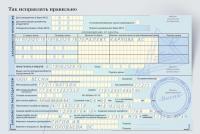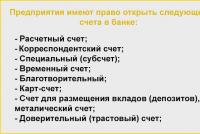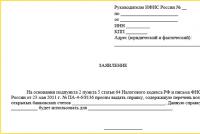Explanatory note from an employee
In the life of every person, situations arise when he may be late for work or not go to work due to any circumstances that may be respectful or disrespectful, and the employer will require an explanation in writing about the committed violations of labor discipline.
An explanatory note in office work is an official document that explains the reasons for the misconduct committed in violation of labor discipline, which led to the imposition of a penalty on the employee. It is conditionally subdivided into notes of an exculpatory and explanatory nature. Which of the types the employee will use when writing an explanatory note depends on the degree of the offense committed.
The law prescribes
In Art. 57 of the Federal Law No. 90-FZ, Art. 192 and 193 of the Labor Code contain instructions that regulate the actions of the employer to request explanations in writing from employees who have committed illegal acts and are guilty of not fulfilling their labor duties, violating labor discipline and labor schedule provided for within the enterprise. The Constitution of the Russian Federation in Art. 27 notes that the employee has the right to write an explanatory note, which cannot relate to duties.
If an employee violates labor discipline by not performing or performing labor duties improperly, then the employer, under the law, has the right to apply disciplinary punishment to him.
The measure of responsibility for the offense committed is classified as:
- remark, often made orally;
- a reprimand, depending on the aggravating circumstances, it is presented orally or in writing;
- dismissal from work with the appropriate wording on the grounds specified in the regulations, the Labor Code.
But, before exercising the right to impose a disciplinary sanction, the employer is obliged to request explanations from the employee explaining the basis of his act, which led to violations of the rules of labor behavior, either orally or in writing.
A written explanation is used only in some cases, for example, if the validity of the reasons that formed the basis of his duty and led to a violation of labor discipline is assessed. In each specific case of an offense, it is necessary to carefully understand it, therefore, an explanatory note argues the details, explains the details of the deed and brings to the attention of the management the opinion of the employee, his ability to analyze the current situation.
If the employee fails to provide an explanatory note within two working days, then, in accordance with the instructions of the current legislation, an act of non-submission is drawn up, which will not become an obstacle to the application of suitable disciplinary punishment by the employer.
 The number of personnel should be calculated on the basis of expediency. See how to compose
The number of personnel should be calculated on the basis of expediency. See how to compose
The characteristic for rewarding the leader must contain positive information. Read more in
Circumstances
The employee is obliged to explain the reasons that prompted him to commit one or another offense related to non-compliance with the requirements for the performance of official duties.
The circumstances are of a different nature, but they all lead to a certain type of violation of labor discipline and routine:
- being late for work for a good or bad reason, it is necessary to clearly determine the belonging of the reason;
- non-fulfillment of direct functional duties or their performance not in accordance with the requirements of duties, for example, the work is performed poorly, therefore it does not bring good results;
- absence from work during working hours without appropriate documents justifying his misconduct, a medical certificate certifying the employee’s illness can act as a justifying document;
- damage to the property of the employer associated with negligence committed in the performance of labor duties;
- non-execution of an order issued by the employer, which is not included in the direct duties of the employee;
- being at work in a state of intoxication from the effects of alcohol, drugs and toxic substances, which will entail a failure to fulfill the obligations assumed to comply with labor protection rules;
- failure to provide reliable information about the production activities of the enterprise to higher management, which lead to economic violations;
- in case of violation of the life safety rules provided for at the enterprise.
Regardless of the circumstances, when an employee provides supporting documents, attached to the explanatory note softens the decision that is made in connection with the misconduct.
Who has the right to claim?

An explanatory note has the right, in accordance with applicable laws and the provisions of the Labor Code of the Russian Federation, to request only the employer. He must hold the position of the head of the enterprise or a person authorized by the head, approved by order for the enterprise for a certain period.
The requirement to write an explanatory note is an integral part of bringing the employee to comply with disciplinary responsibility at the workplace and on the territory of the enterprise.
The explanatory note helps the employer to find out the circumstances due to which the misconduct was made, the degree of guilt of the employee. The employer, realistically assessing the situation, decides on the appropriate measure of disciplinary action, on the need for its adoption.
Is the employee required to respond?

The employee has the right to refuse to write an explanatory note, because it directly or indirectly confirms his guilt. But often the best option may be to provide an explanatory note in order to avoid more severe penalties in the form of penalties or dismissal from work.
An employee who has received an official letter notifying him of the demand for an explanation responds to it, regardless of which decision he chooses: “write an explanatory note or not.”
If he is not going to write it, he must notify the employer of the refusal. In any case, refusal to write an explanatory note is not assessed as an offense.
Writing an explanatory note from an employee

The legislative acts do not contain instructions on the form of an explanatory note, they do not provide unified forms, but there are certain rules according to which it is drawn up.
Compliance with the rules for compiling an explanatory note allows you to correctly formulate its content in order to benefit from it. It is drawn up on a sheet of A-4 paper in accordance with the provisions of GOST, published under the number R-6.30-2003.
Business style is used for its writing. In the "header" of the document, a note is made about who it is addressed to and from whom it comes, usually it is written in the name of the general director. It indicates the name of the department where the employee works, full name. position, signed and dated.
At some distance from the "header", after a few missing lines in the middle of the sheet, the name of the document is written. Next, the text of the explanations is written in an arbitrary form, observing correctness in sentences, literacy, without spelling and punctuation errors.
The explanatory officer should consist of a detailed statement of all the circumstances that prompted him to commit the offense, in case of his inaction, the reasons for which he did not show activity.
It should be marked:
- assessment of the employee's behavior according to the legitimacy of the actions taken or identified inactions, explaining disruptions in the performance of work or dishonest performance of the functional duties assigned to him and the relevance of the arguments given;
- admission or non-admission of guilt;
- circumstances accompanying the implementation of illegal acts;
- the attitude of the employee to his fault, to the negative consequences that arose from the employer;
- the opinion of the employee about bringing him to responsibility by the employer due to non-compliance with labor discipline.
An explanatory note is written by hand, but in some cases, for example, if the handwriting is not clear, it is allowed to type it on a computer, subject to the consent of the employer.
Watch the video as a resourceful designer presented an explanatory note:
How to request?
During the procedure for requesting explanations, the employer documents the date when he requested to provide explanations.
An official document drawn up on the form of outgoing letters and referred to as the "Requirement", signed by the head of the enterprise or a person authorized by the order for the enterprise, indicating the date, gives the employee the right to explain the motives for the misconduct.
The date indicated in it helps the employee determine the deadline for submitting an explanatory note. In some cases, the letter is issued to the employee against signature, a note is made on the delivery of the requirement.
If the employee refuses to accept the requirement, then an act is drawn up on his refusal to accept the requirement. But in no case should the employer force the employee to write, because such an action is considered illegal. Coercion entails proceedings in the labor commission or in court on a claim filed by the employee.
Deadlines

The terms for providing an explanatory note depend on the terms during which disciplinary sanctions are applied, noted in existing legislative acts. If the deadlines specified in the labor code have passed, then the penalty does not apply.
The employer has the right to request an explanatory note no later than a period of one calendar month after he learned about the committed disciplinary offense and an act was drawn up on the event, excluding the days when the employee was sick, was on vacation, the time that was required for consideration by the representative body.
After 6 months, in principle, no disciplinary sanction can be brought. If violations are found during the audit of the production activities of the enterprise on financial matters, during the production of an audit, an audit, the period for presenting a punishment is two years, counting from the day the offense was committed. The legislation has established clear deadlines for imposing punishment, therefore, after their expiration, any action by the employer to impose a penalty, including the requirement for an explanatory note, is considered illegal.
In accordance with the provisions of the Labor Code, the employee is given two working days to write an explanatory note.
The term allotted to him for explanations begins from the moment the explanation is demanded. For example, an employer requested an explanatory note from an employee from an employee on November 28 during the working day. Under current law, an employee has two working days to write an explanation, so the deadline for submitting an explanation will come on December 1. But the employer's demand, announced at the end of the working day, extends the deadline until December 3, because Saturday and Sunday are days off in accordance with the employee's work schedule, and the deadline for providing an explanatory note under Art. 193 of the Labor Code begins only after the demand for an explanation.
Where is it applied?
The employer, having accepted the explanatory note, sends it to the office, where it is registered in the order that is established at the enterprise in the register of internal documents.
The materials of the case on violation of discipline and misconduct by the employee are considered by the head of the enterprise, as necessary, by the trade union committee or commission, after which a decision is made on this event.
On the explanatory note, a note is made on the execution of the decision. It is filed in the employee's personal file for storage, the period of which depends on the aggravating causes of the violation committed.
What to do if an employee refuses to write an explanatory note?

If the employee refuses to explain the circumstances of the incident, the employer creates a commission that draws up an act certifying the employee's refusal to write an explanatory note explaining his misconduct.
The act is signed by the employer, members of the commission, who are employees of this enterprise. The date of its compilation is mandatory in the act. It is registered in the internal workflow journal, then transferred to the personnel department for storage.
The order or instruction of the employer on readiness to use the right to impose a disciplinary sanction is presented to the employee within three days after the issuance of the order, excluding the time the employee is absent from the workplace.
Familiarization with the order is carried out against signature, therefore, if the employee does not want to put his signature, a proper act is drawn up.






